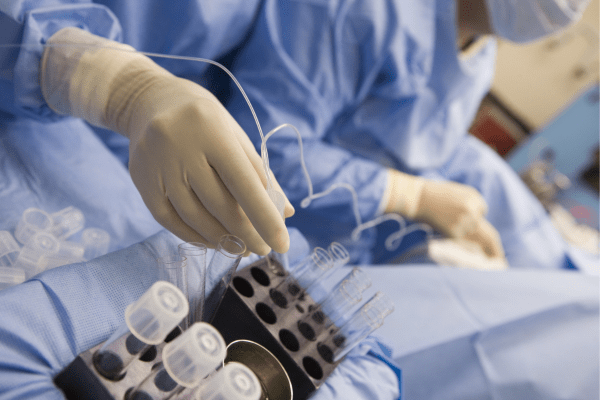Egg retrieval, a crucial step in the process of in vitro fertilization (IVF), involves the extraction of eggs from a woman’s ovaries for fertilization in a laboratory setting. This procedure is a pivotal part of assisted reproductive technologies, and understanding what occurs before, during, and after egg retrieval is essential for those undergoing fertility treatments.
Before Egg Retrieval
Ovarian Stimulation
- Ovarian Stimulation Medications:
– Before egg retrieval, individuals typically undergo ovarian stimulation using fertility medications. These medications stimulate the ovaries to produce multiple eggs, increasing the chances of a successful IVF cycle.
- Monitoring and Hormone Levels:
– Regular monitoring through ultrasounds and blood tests is conducted to track the development of follicles (fluid-filled sacs containing eggs) and hormone levels.
Trigger Shot
- HCG Trigger Shot:
– A trigger shot of human chorionic gonadotropin (hCG) is administered when the follicles are mature. This shot prepares the eggs for retrieval.
- During Egg Retrieval
- Anesthesia
- Sedation or Anesthesia:
– Before the procedure, individuals are typically given sedation or anesthesia to ensure a pain-free experience during egg retrieval.
- Ultrasound-Guided Retrieval
- Transvaginal Ultrasound:
– A transvaginal ultrasound probe is inserted to visualize the ovaries and follicles.
- Aspiration of Follicles:
– A thin, hollow needle is passed through the vaginal wall into each follicle, and the fluid containing the eggs is gently aspirated.
- Duration
- Short Procedure:
– The entire egg retrieval procedure usually takes about 20-30 minutes.
III. After Egg Retrieval
- Recovery Room
- Post-Procedure Monitoring:
– Individuals are monitored in a recovery room for a brief period to ensure there are no immediate complications.
- Rest and Recovery
- Rest Period:
– It is advised to take it easy for the rest of the day after the procedure.
- Common After-Effects:
– Mild cramping or discomfort is common after egg retrieval.
Fertilization in the Laboratory
- Laboratory Process:
– The retrieved eggs are fertilized with sperm in a laboratory, and the resulting embryos are monitored for development.
- Embryo Transfer
- Embryo Transfer Timing:
– Embryo transfer usually occurs a few days after egg retrieval, once the embryos have developed.
- Possible Risks and Complications
- Ovarian Hyperstimulation Syndrome (OHSS)
- Monitoring for OHSS:
– Individuals are monitored for signs of OHSS, a potential complication characterized by enlarged ovaries and fluid retention.
- Infection or Bleeding
- Rare Complications:
– Infection or bleeding is rare but possible. Close monitoring and prompt medical attention address any complications.
Conclusion
Egg retrieval is a crucial step in the IVF process, offering the potential for successful fertilization and pregnancy. Understanding the steps involved, from ovarian stimulation to the actual retrieval, and the recovery process afterward, helps individuals navigate this significant aspect of fertility treatments. It is essential to communicate openly with healthcare providers, ask questions, and follow post-retrieval instructions for a smoother experience.
For those seeking fertility-related solutions, consulting with experts like Dr. S. Vyjayanthi, MD, DGO, DNB, MRCOG, MSC (Embryology UK), CCT(UK), at MotherToBe, ensures personalized care and guidance throughout the IVF journey.
FAQs
- Is egg retrieval painful?
– With the administration of sedation or anesthesia, individuals typically experience little to no pain during the egg retrieval procedure.
- How many eggs are usually retrieved during IVF?
– The number of eggs retrieved can vary, but it is common to retrieve multiple eggs to increase the chances of successful fertilization.
- What happens to the eggs after retrieval?
– The retrieved eggs are fertilized with sperm in a laboratory, and the resulting embryos are monitored for development before embryo transfer.
- Are there any long-term effects of egg retrieval?
– Egg retrieval is generally considered safe, with any potential risks or complications being rare. Long-term effects are minimal, and the procedure is well-tolerated by most individuals.
- When can embryo transfer occur after egg retrieval?
– Embryo transfer usually occurs a few days after egg retrieval, allowing the embryos time to develop in the laboratory.

